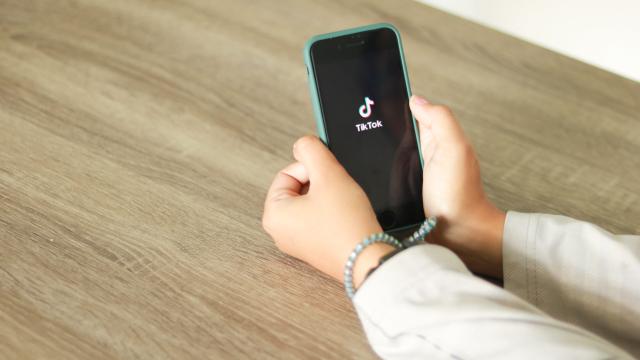Every few months, news of another dangerous TikTok “challenge” circulates that horrifies parents everywhere. From the “Skull-Breaker Challenge” to the “Benadryl Challenge,” kids are always finding new, perilous ways to dare each other into harming or even killing themselves. The latest recirculation is called the “Blackout Challenge,” in which a person intentionally tries to choke themself or someone else in an effort to obtain a “high.” And while we should absolutely warn our kids about this specific challenge, it also highlights that we need to teach them to think critically about all of these challenges and dares they may come across.
These challenges aren’t new — the Blackout Challenge itself has been around for decades. But what makes them especially dangerous now is that rather than trying to impress a few peers at a party, “performing” them on social media means a wider audience and potentially greater payoff in terms of “likes” and attention. Add to that a pandemic in which kids have been feeling more isolated and possibly more anxious and depressed than usual, and they may be feeling more tempted to try one.
That’s why we’ve got to add this topic to our running list of big, important talks we need to have with our kids as they get older.
Teach them the basics
If your kids are on any kind of social media platform, along with teaching them the ins and outs of digital safety, we should also be teaching them about these challenges and how to avoid them. You can start by talking about some of the different challenges you’ve heard of, including the few I mentioned above, and the tragic injuries and deaths that have happened as a result. Some kids will recognise them for the risky, ridiculous behaviours they are and will avoid them — and others will be drawn to them because they’re risky and ridiculous.
Talk to them about how to think critically about what the outcome of any of these “challenges” might be. If the goal is to get “high” or experience some kind of altered mental state, it’s dangerous and could have permanent consequences; and because some of these challenges are pulled on unwitting participants, such as the Skull-Breaker Challenge, they should be wary of agreeing to join in anyone else’s video if they’re not completely sure what is going on.
Because these are often called “challenges,” they can be easy for kids to spot — that word itself can signal it’s a dangerous activity. But we should also talk about how many physical “dares” in general should be avoided. Remind them that however much social clout they might earn in the moment won’t be worth it if someone ends up hurt — or worse — as a result.
Help them develop responses
Kids crave acceptance from their peers, and that pressure to be liked and to belong can be a powerful motivator that causes them to do things they wouldn’t normally do. It’s helpful to think through how they’d respond in advance, so they’re ready with a quick retort when they start to feel pressured to do something they know is a bad idea.
Personally, I love the response my son’s martial arts teacher has taught the kids in his class. When someone wants you to do something you know is stupid, he says, you call it like it is: “Dude, I’m not doing that; that’s stupid.” It’s incredibly simple and also effective and turns the pressure back on the idiot who is suggesting idiotic things. They might also trying something less combative, such as, “Nah, no thanks, I’m not into that.”
It’s also a good idea to give your kids a secret code they can use with you to help them get out of a sticky situation in person. They text you a predetermined code message (an “X” is easy enough, or a word you all agree on), and a few minutes later, you call them and say something has come up at home and you need to come get them right away — and you’ll explain when you get there. That allows your tween or teen to make a speedy exit without needing to explain why.
You should also encourage kids to report anything on social media that is disturbing or unsafe. Empower them to be part of the solution to keep other kids (who may be more easily swayed) safe.

Leave a Reply
You must be logged in to post a comment.